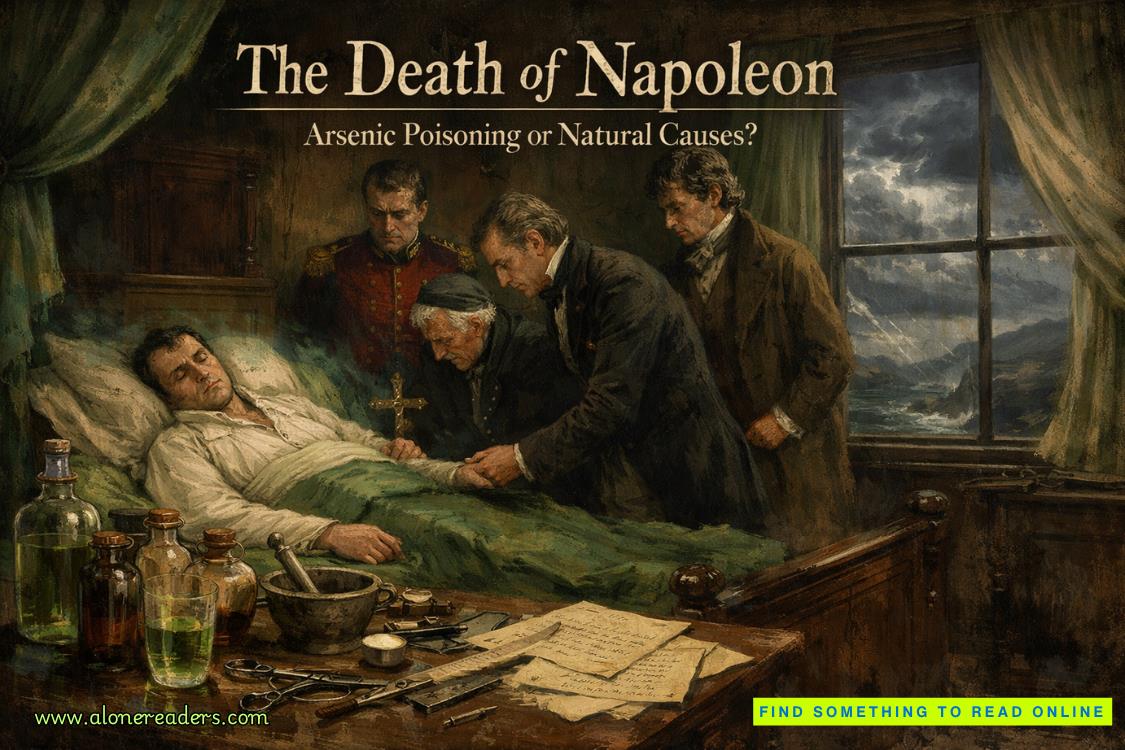Erman said: “Let’s throw him in the river.”
“No,” said Ma. “I want other thieves to know we killed him.” She was in no danger from the law: it was well established that a thief caught red-handed could be killed on the spot. “Follow me, boys. Bring the corpse.”
Erman and Eadbald picked it up. Ma led them into the woods and went a hundred yards along a just-visible path through the undergrowth until she came to a place where it crossed another almost imperceptible track. Anyone coming to the farm through the forest would have to pass this junction.
She looked at the surrounding trees in the moonlight and pointed to one with low, spreading branches. “I want to hang the body up in that tree,” she said.
Erman said: “What for?”
“To show people what happens to men who try to rob us.”
Edgar was impressed. He had never known his mother to be so harsh. But circumstances had changed.
Erman said: “We haven’t got any rope.”
Ma said: “Edgar will think of something.”
Edgar nodded. He pointed to a forked branch at a height of about eight feet. “Wedge him in there, with one bough under each armpit,” he said.
While his brothers were manhandling the corpse up into the tree, Edgar found a stick a foot long and an inch in diameter and sharpened one end with his ax blade.
The brothers got the body into position. “Now pull his arms together until his hands are crossed in front.”
When the brothers were holding the arms in position, Edgarheld one dead hand and stuck the stick into the wrist. He had to tap it with the head of the ax to push it through the flesh. Very little blood flowed: the man’s heart had stopped some time ago.
Edgar lined up the other wrist and hammered the stick through that, too. Now the hands were riveted together and the body was firmly hung from the tree.
It would remain there until it rotted away, he thought.
But the other thieves must have returned, for the corpse was gone in the morning.
A few days later Ma sent Edgar to the village to borrow a length of stout cord to tie up her shoes, which had broken. Borrowing was common among neighbors, but no one ever had enough string. However, Ma had told the story of the Viking raid twice, first in the priests’ house and then at the alehouse; and although peasants were never quick to accept newcomers, the inhabitants of Dreng’s Ferry had warmed to Ma on hearing of her tragedy.
It was early evening. A small group sat on the benches outside Dreng’s alehouse, drinking from wooden cups as the sun went down. Edgar still had not tasted the ale, but the customers seemed to like it.
He had met all the villagers now, and he recognized the members of the group. Dean Degbert was talking to his brother, Dreng. Cwenburg and red-faced Bebbe were listening. There were three other women present. Leofgifu, called Leaf, was Cwenburg’s mother; Ethel, a younger woman, was Dreng’s other wife or perhaps concubine; and Blod, who was filling the cups from a jug, was a slave.
As Edgar approached, the slave looked up and said to him in broken Anglo-Saxon: “You want ale?”
Edgar shook his head. “I’ve no money.”
The others looked at him. Cwenburg said with a sneer: “Why have you come to an alehouse if you can’t afford a cup of ale?”
Clearly she was still smarting from Edgar’s rejection of her advances. He had made an enemy. He groaned inwardly.
Addressing the group, rather than Cwenburg herself, he said humbly: “My mother asks to borrow a length of stout cord to mend her shoe.”
Cwenburg said: “Tell her to make her own cord.”
The others were silent, watching.
Edgar was embarrassed, but he stood his ground. “The loan would be a kindness,” he said through gritted teeth. “We will repay it when we get back on our feet.”
“If that ever happens,” Cwenburg said.
Leaf made an impatient noise. She looked about thirty, so she must have been fifteen when she gave birth to Cwenburg. She had once been pretty, Edgar guessed, but now she looked as if she drank too much of her own strong brew. However, she was sober enough to be embarrassed by her daughter’s rudeness. “Don’t be so unneighborly, girl,” she said.
Dreng said angrily: “Leave her alone. She’s all right.”















